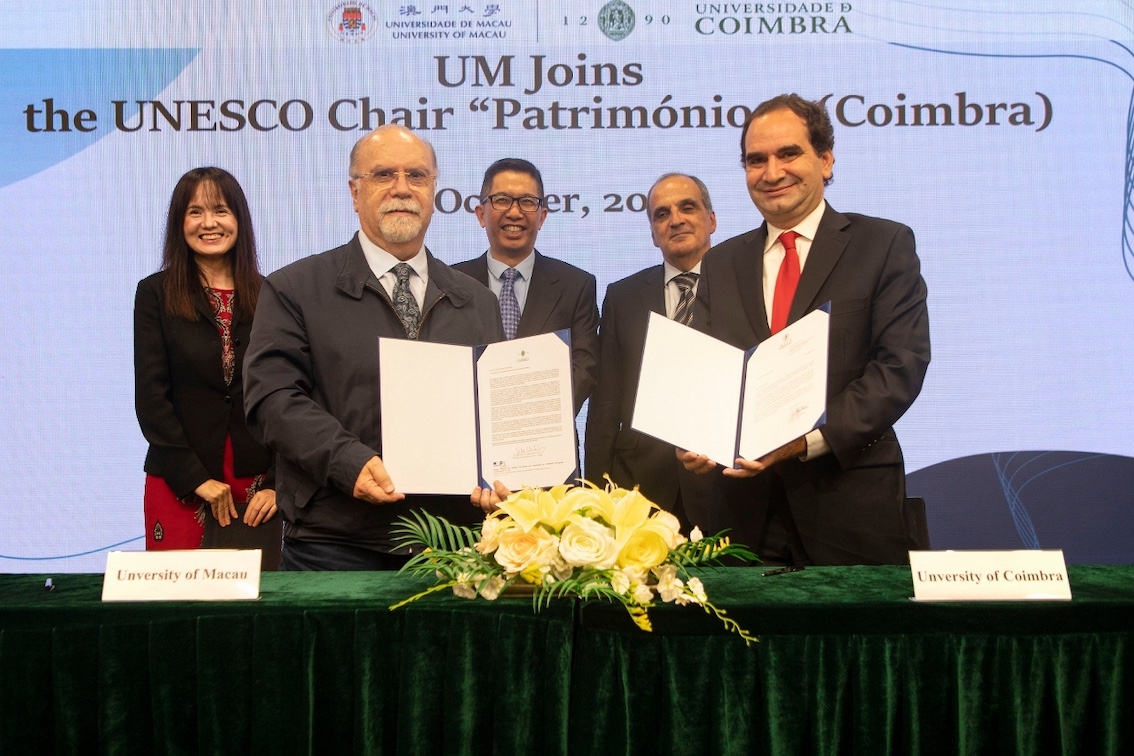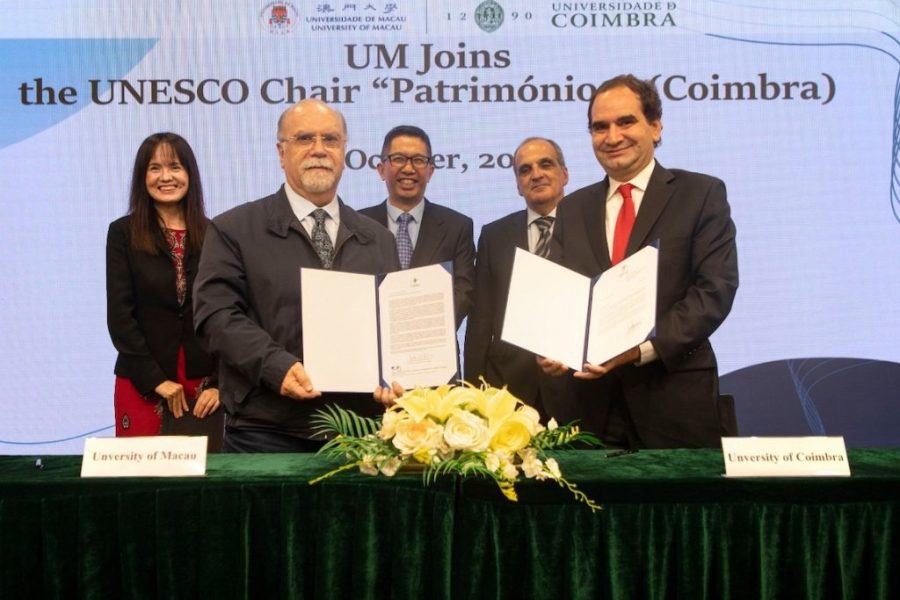The University of Macau (UM) has officially joined a network established by the UNESCO Chair on Intercultural Dialogue on Heritages of Portuguese Influence (Patrimónios) at the University of Coimbra.
This collaboration will strengthen UM’s connections with higher education institutions in Portuguese-speaking countries and enhance cultural heritage research and international academic exchange in Macao.
During a signing ceremony, Rui Martins, vice rector of UM, and João Nuno Cruz Matos Calvão da Silva, vice rector of the University of Coimbra, confirmed their partnership. Martins highlighted that the UNESCO Chair project, an international initiative combining research, training, and development cooperation, had already built a broad network of partners.
[See more: Does Macao need a proper Macanese museum?]
UM’s participation is expected to enrich the network with additional academic resources and cultural insights. The Department of Integrated Resort and Tourism Management at UM’s Faculty of Business Administration will lead the project’s execution, showcasing its expertise in cultural heritage research.
Furthermore, both universities will establish the Luís de Camões Universal Database. This initiative reflects their commitment to deepening cooperation in Portuguese cultural studies and aims to create a comprehensive digital platform serving as an authoritative resource for Camões research globally.
Established by the University of Coimbra in 2018, the UNESCO network promotes interdisciplinary education and research focused on various cultural heritage forms, exploring the diverse outcomes of Portuguese-speaking cultures.






